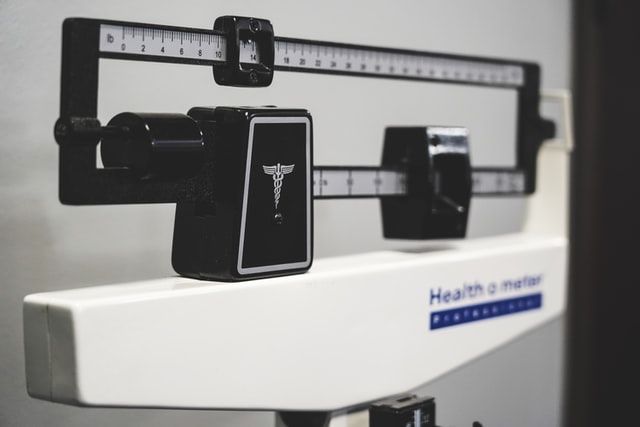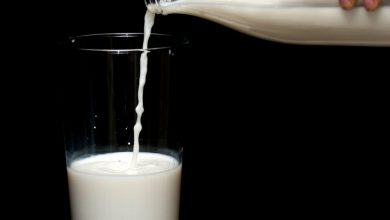
How to Lose Weight Without Counting Calories
Counting calories and following diets based on calorie restriction have been proven to be very effective for many people. Calories are the unit of measurement that tracks energy units consumed; therefore, it makes perfect sense that if you expel more energy than you’re consuming or storing that you would lose weight. This is why a large number of diets are based on tracking calories.
What’s important to keep in mind is that weight loss methods work differently for everyone. What may be incredibly effective as a weight-loss tool for one person may have little to no effect on someone else. Keeping this fact in find, we wanted to gather some fantastic alternative weight-loss methods that focus on losing weight in ways other than counting calories. Take a look below.
Significantly Reduce or Eliminate Sugar
Eating foods with high amounts of added sugar is one of the easiest ways to gain weight. Foods with high sugar amounts are usually devoid of nutrients your body needs, filled with empty non-essential calories, and can actually increase your appetite and make you eat more. By reducing your sugar intake, the choices you make in eating are likely to be healthier and more conducive to better calorie control.
Eat More Protein
Protein is the friend of anyone who is looking to maintain a healthy diet and lose weight. By increasing the amount of protein you eat on a daily basis, you can significantly reduce your appetite and cravings. Protein also helps feed muscles focused on burning calories, which can increase your metabolism. Eating more healthy proteins like lean chicken, fish, nuts, cheese, eggs, and other items are key.
Focus on Boosting Your Metabolism
Cutting too many calories from your diet can have the exact opposite intended effect and cause you to gain weight in some cases. Your metabolism relies directly on having the right amount of calories available to burn for energy. When you eat too few calories, your body can experience “metabolic adaptation,” in which it will reduce your metabolism’s speed in order to preserve energy. Instead of cutting calories, try focusing on boosting your metabolism by eating right and exercising regularly.
Up Your Fiber Intake
Not only does fiber help keep things moving in your digestive system, but it can also help you feel fuller for longer. Some fibers can also help balance the bacteria in your gut to promote further weight loss.

Eat Whole Foods
The whole foods diet is centrally focused on eating non-processed, fresh, and healthy food. By eating more foods like fruits, vegetables, lean meat, fish, nuts, and seeds, you can feel fuller for longer and also promote the addition of healthy and necessary nutrients and antioxidants into your body.
Increase Your Cardio
Regular exercise is not only essential to your health but essential to weight loss. Cardio is an excellent choice to promote heart health, but it is also an excellent tool for losing weight. Cardio exercises have been shown to effectively burn calories, lower your overall calorie deficit, and accelerate your metabolism going forward.
80/20
If indulgence sounds more your style, the 80/20 method of eating may be what you’re looking for. With the 80/20 diet, you focus very heavily on eating balanced and healthy 80 percent of the time. The remaining 20 percent of the time can be spent allowing yourself to indulge (within reason) in eating things that may not be as healthy for you. The purpose of eating this way is to help you focus on eating right the majority of the time by allowing you to still enjoy guilt-free indulgences.
Try Ketosis
The keto diet is currently one of the most popular diets and is reported to work well for many of its followers. In the keto diet, you reduce carbs and sugars almost entirely and focus on eating mainly healthy fats, proteins, and whole foods. The purpose of the diet is to place your body in a state of ketosis through eating this way. Ketosis is the process of your body burning fat because it has been deprived of carbohydrates.
Incorporate More Snacking
That’s right – try incorporating more snacking throughout the day. By choosing healthy foods to eat throughout the day, you can help curb excessive hunger, which leads to overeating, keep your blood sugar balanced better, and contribute to your body maintaining a healthy metabolism.
Drink More Water
Water is key to any healthy diet. Ensuring that you consume enough water can help keep you energized and hydrated, help your colon to flush unneeded waste from your system, and help you feel fuller faster. Speaking of drinks, eliminating the consumption of sugary sodas and other beverages can also help, as they don’t generally provide any nutritional value and are full of empty calories.
Use Small Plates
When you choose to load up your food on smaller plates than usual, you can trick your mind into feeling fuller faster. Smaller plates can help you reduce portion sizes significantly without feeling deprived.

Sleep More and Stress Less
Studies have shown a significant connection to stress and sleep impacting weight gain. A fat increasing hormone called cortisol has been shown in studies to increase as a result of stress. At the same time, lack of sleep can contribute to excessive hunger cravings and poor eating choices. And poor sleeping habits have also been shown in some studies to increase the risks of obesity significantly in children by 89 percent and in adults by 55 percent. Essentially, getting more rest and de-stressing can potentially do wonders for maintaining a healthy weight.



